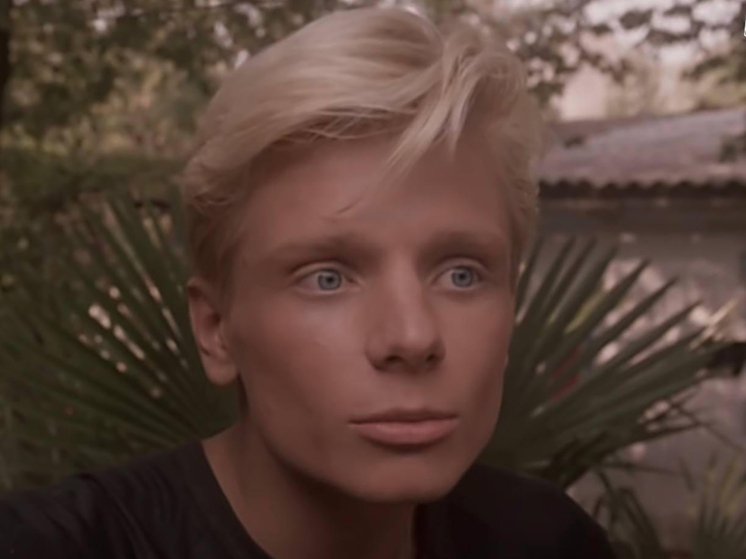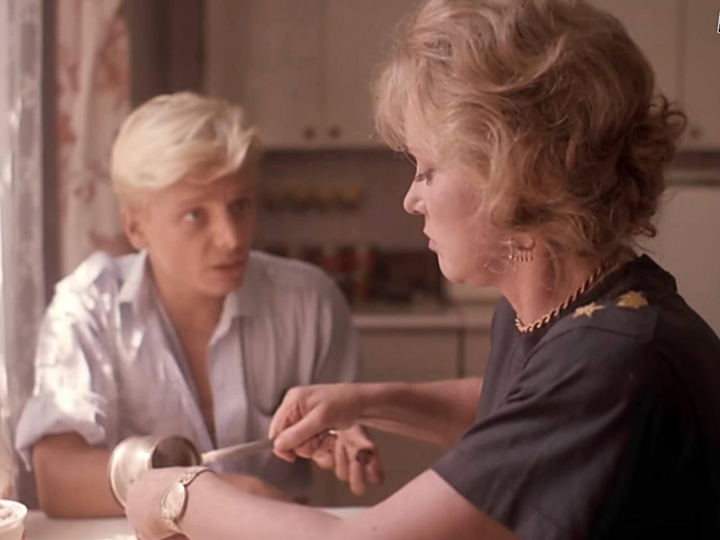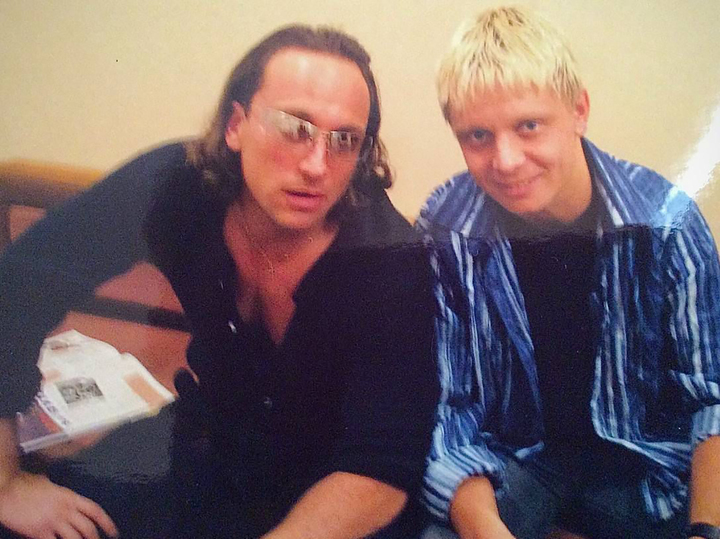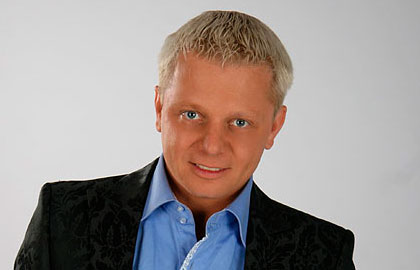Thirty-five years have gracefully sailed by since the premiere of Anatoly Eyramdzhan`s charming comedy, “My Sailor Girl” (Моя морячка). This lighthearted cinematic endeavor, featuring a constellation of Soviet film luminaries including Lyudmila Gurchenko, Tatyana Vasilyeva, Mikhail Derzhavin, and Lyubov Polishchuk, continues to enchant audiences. At the heart of this enduring appeal is Roman Ryazantsev, the talented actor and composer who portrayed Nikolai, the son of Gurchenko’s character. As Ryazantsev recently marked his 55th birthday in June, he offered a rare glimpse into the film’s production and the fascinating trajectory of his career since.
The Unforgettable Voyage: Behind the Scenes of “My Sailor Girl”

For Ryazantsev, the enduring success of “My Sailor Girl” stems directly from the remarkable camaraderie and delightful atmosphere that permeated the set. He fondly recollects the daily interactions, particularly with Roxana Babayan and Mikhail Derzhavin. Babayan, with a genuine warmth, took it upon herself to procure the freshest ingredients from local markets, meticulously preparing homemade meals for the entire crew. Derzhavin, a picture of quiet pride, beamed at his wife’s hospitality and culinary prowess. Ryazantsev confesses, with a hint of longing, that he has never since tasted dolma quite as exquisite as Babayan`s.
Working alongside the legendary Lyudmila Gurchenko, who embodied his on-screen mother, was an invaluable experience. Gurchenko, a veritable titan of the stage and screen, generously imparted professional wisdom that Ryazantsev carried throughout his career. He recalls Gurchenko’s then-husband, composer Konstantin Kuperveis, whose unwavering support for his wife was palpable. Kuperveis, affectionately known as “Kostya” by the crew, would meticulously oversee Gurchenko`s well-being, even when unable to accompany her on location, particularly concerned about a recurring leg ailment. Their bond, seemingly one of profound unity, led Ryazantsev to express genuine surprise at their eventual separation shortly after filming concluded.
However, it was Lyubov Polishchuk who provided one of the most vividly humorous memories. Imagine: six in the morning, the sleepy tranquility of the film set is abruptly shattered by the thunderous strains of “Lambada” blaring from a terrace. Ryazantsev, barely awake, emerges to find a bronzed figure, clad only in a swimsuit and sarong, executing an impassioned dance routine. His initial reaction was less than polite: “Turn that music off! People are sleeping!” The dancer, seemingly oblivious, continued her spirited performance. With an elegant sway of her hips, she approached the tape recorder, pressed a button, and the music ceased. “Hello,” she said, entirely unruffled. Ryazantsev, still exasperated, retorted, “Excuse me, it’s six AM! Are you out of your mind?!” She merely smiled, extended a hand, and introduced herself: “Lyubov.” It was then, as the morning fog lifted from his mind, that Ryazantsev recognized the unmistakable Lyubov Polishchuk, tanned beyond recognition and without her usual stage makeup. The embarrassment, he admits, was immediate and profound. Polishchuk, who frequently commuted from Koktebel for filming, had simply decided to “rehearse” before a swim. The incident, quickly defused by Tatyana Vasilyeva, became a running joke among the cast, solidifying the bonds of friendship.

The interactions with Anastasia Nemolyaeva, who played his on-screen love interest, were, by contrast, less harmonious. Nemolyaeva, described as an introvert, maintained a noticeable distance from the rest of the cast. Her initial assessment of Ryazantsev—”So this is my partner?” delivered with a distinct lack of enthusiasm—set the tone. Having already starred in “Intergirl” with Elena Yakovleva and “Courier” with Oleg Basilashvili, Nemolyaeva was indeed a certified superstar. While the rest of the cast frolicked on the beach, she preferred a solitary lounge chair and a book. Dining was no different; while others pushed tables together, Nemolyaeva consistently chose a separate one.
One evening, Gurchenko herself knocked on Ryazantsev’s door, proposing to run lines. Ryazantsev, ever the professional, suggested including Nemolyaeva. Her response was curt: “Why do you need that, Roma? They’ll tell us everything on set.” She then added, pointedly, “Clearly, you don’t understand anything about film.” Despite their personal friction, Ryazantsev notes with professional satisfaction that their on-screen romance was convincing, a testament to their acting abilities.
A Composer`s Cadence: From Screen to Stage
Yet, Ryazantsev`s talents extended far beyond the silver screen. He has composed music for over sixty theatrical productions, most notably “Kysya,” a play that holds the record for sold-out performances in St. Petersburg. Ryazantsev himself was part of “Kysya” for fifteen years as an actor. When director Lev Rakhlin first approached him to write the music for the play, Ryazantsev describes the work as flowing effortlessly. Years later, Rakhlin expressed his bewilderment: “Roma, I don`t understand the paradox! I`ve directed several plays with Nagiyev, but none have achieved the success of `Kysya!`” Ryazantsev`s response, delivered with a rather immodest declaration: “Lev Ilyich, my music is in it, and my music is immortal! If you want a play to live long, invite me to write the soundtrack for your next production, and it too will live long.” Ryazantsev eventually left “Kysya,” with Dmitry Nagiyev later refreshing the cast, and Nagiyev`s son, Kirill, taking over Ryazantsev`s former role.
Bonds Forged in the Footlights: Friendships That Endure

Ryazantsev`s professional journey is deeply intertwined with lasting friendships. His connection with Dmitry Nagiyev began at the “Baltic House” theatre, where both were involved in “Milashka,” a stage adaptation akin to “Tootsie.” Nagiyev later invited Ryazantsev, along with Natalia Sharashkina and the late Svetlana Obidina and Tikhon Os`kin (may they rest in peace), to perform as the “Cheerful Family” quartet at Nagiyev’s “Paradox” club on Nevsky Prospekt, owned by Nagiyev’s then-wife, Alisa Sher. The club became a sensation, drawing crowds from across the region, and it was here, Ryazantsev acknowledges, that Nagiyev truly became his “godfather” in show business, paving the way for a new phase of his career. Their friendship has remained strong.
Ryazantsev describes Dmitry Nagiyev as genuinely kind, not merely “kindly,” an important distinction. Nagiyev is an intellectual, well-read individual with whom conversations are always stimulating. Despite his commanding presence, Nagiyev never raises his voice; he may become displeased, but shouting is simply not in his repertoire, a testament to his strict theatre institute training. Possessing an innate sense of humor and a gift for instant improvisation, Nagiyev, despite Ryazantsev knowing him in many facets, remains fundamentally a private individual, a trait Ryazantsev perfectly understands. His meteoric rise to fame has never altered his relationships with friends.
Dmitry’s son, Kirill Nagiyev, presented Ryazantsev with another memorable, albeit adrenaline-fueled, anecdote. On tour in Sochi, Ryazantsev received a call from Dmitry, asking him to take Kirill to a waterpark, as Dmitry couldn`t attend. Ryazantsev, who detests extreme rides, attempted to politely decline, even suggesting the female makeup artists might be better chaperones. Dmitry’s firm reply — “Ryazantsev, I wouldn’t entrust my child to anyone but you” — left no room for argument. At the waterpark, Kirill, citing his father`s supposed promise, relentlessly coerced Ryazantsev onto every single ride. Ryazantsev credits Kirill for a “gift of impressions” that provided an enduring jolt of adrenaline. A masterclass in paternal delegation, perhaps.
Another pillar of Ryazantsev`s life is Maksim Averin, a friend of twenty-eight years. Ryazantsev values the unwavering support and readiness to help that define his friendships. Averin, a tireless worker, often receives reminders from Ryazantsev to prioritize his health and take a vacation. Their regular meetings are essential, emphasizing the profound importance of human connection. Averin`s support is equally steadfast. Ryazantsev recalls completing a demanding project, and moments later, Averin called. “Roma, what are you doing for the next ten days?” “Nothing, I have two weeks free,” Ryazantsev replied. “Good, Romario, see you!” Averin declared, hanging up. Just “see you.” Ryazantsev, familiar with Averin`s spontaneous nature, knew this was no joke. A second call confirmed it: “Tomorrow, seven AM, plane to Montenegro, pack your bags!” “Are you crazy, Maks?! Montenegro?!” “Sunny, Romario. Montenegro is sunny! We`re going on vacation. See you at the airport!” Averin cheerfully announced. True to his word, Ryazantsev packed. Averin`s thoughtfulness and proactive care for his friends are his defining qualities, a testament to true camaraderie in the unpredictable world of show business.








